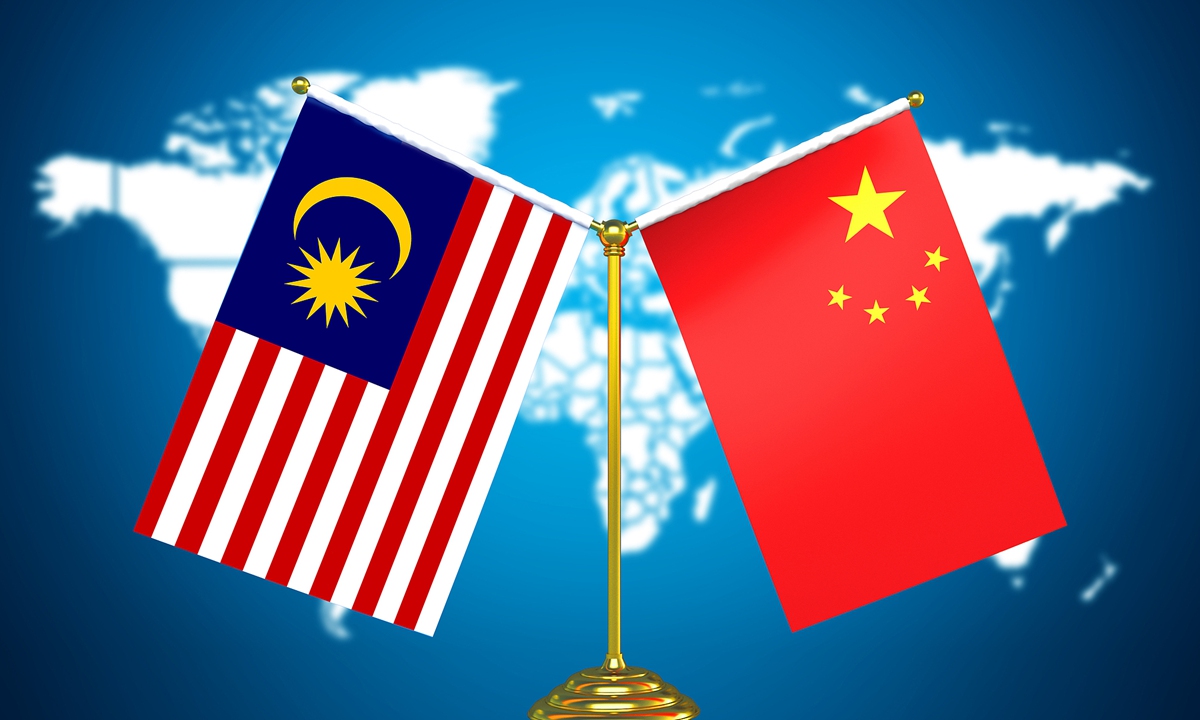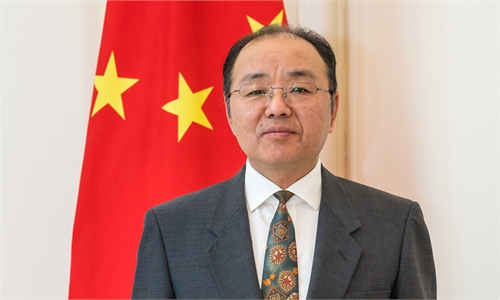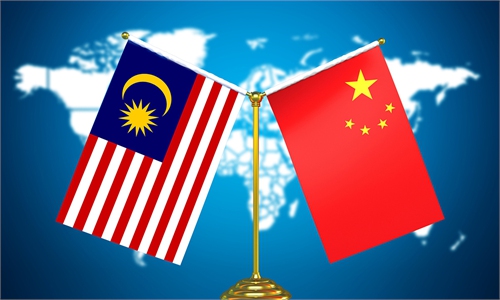High-level engagement underscores China’s commitment to deepening strategic partnership with Malaysia amid global uncertainties: envoy
Two countries to jointly build safe, stable industrial chain

China Malaysia Photo: CFP
The visit of Chinese President Xi Jinping to Malaysia marks a pivotal moment for strengthening economic and trade ties between the two nations, and this high-level engagement underscores China's commitment to deepening its strategic partnership with Malaysia, particularly amid global trade uncertainties, Unny Sankar Ravi Sankar, Minister of Economic Affairs of the Malaysian Embassy in Beijing, told the Global Times in an exclusive interview.
This year, Malaysia takes the helm of ASEAN chairmanship, a crucial role to navigate the global economic uncertainties and to chart for ASEAN's next stage of economic growth. The official visit is expected to reinforce not only the existing bilateral collaborations but also the regional cooperation.
The visit also signals Malaysia's importance as a stable partner of China in Southeast Asia, potentially attracting further Chinese investments to drive economic growth, the envoy said.
China and Malaysia have agreed to build a high-level strategic community with a shared future to accelerate their modernization efforts and jointly promote regional and global prosperity and stability, according to Xinhua News Agency.
The two countries made the announcement on Thursday in a joint statement released in the context of the state visit, which took place from Tuesday to Thursday, the report said.
Focusing on four key areas, namely digital economy, green economy, blue economy and tourism economy, the two sides pledged to expand future economic cooperation, promote integrated, coordinated and complementary development, achieve deep integration of industrial and supply chains, value chains, data chains and talent chains, so as to further improve the level and quality of China-Malaysia cooperation, according to the joint statement.
The two countries also agreed to jointly build a safe and stable industrial and supply chain and strengthen cooperation, the statement said.
The cooperation between the two countries has been evident. In 2024, bilateral trade between China and Malaysia reached $212 billion, nearly a thousand-fold increase since the establishment of diplomatic ties, Xinhua reported. China has remained Malaysia's largest trading partner for 16 consecutive years, the report said.
"Chinese companies have established robust supply and industrial chains in Malaysia, particularly in manufacturing, logistics, and technology sectors," Sankar said, giving the example of the East Coast Rail Link that "enhances connectivity and integrates supply chains by linking Malaysia's east and west coasts, reducing logistics costs and boosting trade efficiency."
On a further note, he said that the "Two Countries, Twin Parks" program, which pairs industrial zones in China's Qinzhou and Malaysia's Kuantan, "has created industrial clusters in steel, petrochemicals, and renewable energy, fostering job creation and technology transfer."
"Chinese investments in semiconductors and electronics have strengthened Malaysia's position in global supply chains, with companies like Huawei supporting local 5G infrastructure… These efforts contribute to Malaysia's economic development by generating employment, enhancing industrial capacity, and attracting further foreign direct investment," the Malaysian economic envoy said.
Looking ahead, Sankar said that Malaysia is actively exploring collaboration opportunities with China in green development, new energy, and emerging technologies to unlock fresh economic avenues. "This approach leverages Malaysia's resource potential while addressing China's industrial demands," he said.
"These collaborative efforts not only contribute to GDP growth but also align with Malaysia's vision for sustainable and inclusive development, as championed by Tengku Zafrul Abdul Aziz, the Minister of Investment, Trade, and Industry Malaysia," said Sankar.
Loh Wee Keng, chairman of the Malaysian Chamber of Commerce and Industry in China, told the Global Times that "we look forward to China bringing its cutting-edge new-energy vehicle industry chain to Malaysia... China's rare-earth mining technology is another area we are keen to introduce."
Other sectors, such as artificial intelligence and big data centers, are also open for Chinese investment in Malaysia, said Loh.
At the same time, China's vast market provides significant opportunities for Malaysian agricultural and electronic products, said Loh, noting that "Malaysian companies should seize the momentum of China's rapid development in electric vehicles and the digital economy, and grow together with Chinese enterprises to become leaders in the emerging new economy."



